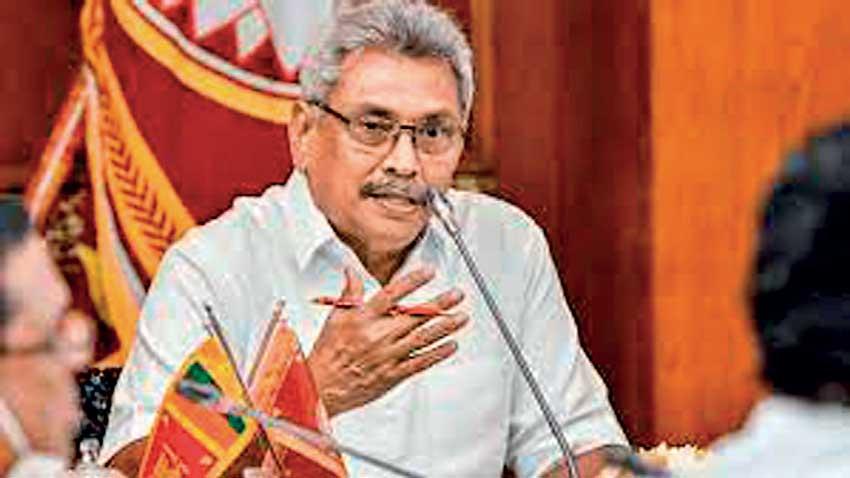08 Oct 2021 - {{hitsCtrl.values.hits}}

 The answer to our current fertiliser and pesticide predicament is in a remarkable statement made five centuries ago by the father of the science of pharmacology, Bombastus Paracelsus (1493-1541) that: “All substances are poisons; there is nothing which is not a poison; and it is the dosage that differentiates poison and remedy.”
The answer to our current fertiliser and pesticide predicament is in a remarkable statement made five centuries ago by the father of the science of pharmacology, Bombastus Paracelsus (1493-1541) that: “All substances are poisons; there is nothing which is not a poison; and it is the dosage that differentiates poison and remedy.”
Agrochemicals, whether organic or inorganic, become poisons when misused and what is needed is judicious use, for which the farmers should be intensively trained. Judicious use will transform the ‘fertiliser poison’ into the remedy for hunger and starvation.
I quote below a para of your presentation to the UN Assembly a few days ago as published in the media:
“Sustainability is a cornerstone of Sri Lanka’s national policy framework. Because of its impact on soil fertility, biodiversity, waterways and health, my government banned the use of chemical fertilisers, pesticides and weedicides earlier this year. Production and adoption of organic fertiliser, as well as investments into organic agriculture, are being incentivised.”
From the above statement and the chaotic happenings in the country with regard to fertilisers, it would appear that you have not paid attention to the most important, sustainability consideration, that of food security of the country’s masses. In your unattainable quest for converting the country’s total agriculture virtually overnight to organic from conventional and creating a world record of becoming the first to do so, you have not in depth visualised the devastating likely negative consequences.
However, your manifesto ‘Saughbaghya Dekma’ stated that this conversion will be over a 10-year period and the people now ridicule that, the way things are happening, let alone ‘sough baga’ (half sago) there will be no ‘sough’ at all in the near future.
Both your key decisions in agriculture policy, enunciated without seeking expert advice have been disastrous. The hurried decision to ban palm oil importation had to be reverted and the oil palm cultivation ban is now held in abeyance. Evidently the same fate appears to befall the hasty organic drive.
Regrettably, the organisation mandated to conduct research and development in oil palm, namely, the Coconut Research Institute or the Plantation Industries Ministry had been consulted when rushing to ban palm oil; nor the Agriculture Department or other agricultural research institutes and the relevant ministries had been consulted, in deciding to go 100 percent organic within an year. The consequence of all this is the utter frustration of the farmers. The research scientists and academics in agriculture too are up in alms as evident from the recent media reports.
Two examples of rational policymaking from neighbouring countries, in regard to palm oil, are worth citing here. In the early 1960s, Tunku Abdul Rahman, the Premier of Malaysia, seeing the rapidly increasing global vegetable oil demand decided to change its policy on rubber and oil palm cultivation expansion from a ratio of 60 percent and 40 percent to vice versa. An analysis made two decades later revealed a substantial income and livelihood improvement of the small oil palm cultivators as against the comparable rubber growers.
More recently, Premier Narendra Modhi of India, seeing the low yields of arable vegetable oil crops, such as linseed, sesame and others, which are usually below one tonne/ha as against oil palm, which has a global mean average yield approaching four tonnes/ha and the huge Indian vegetable oil import bill, decided to expand the palm oil cultivation to two million hectares, replacing the arable vegetable oils from much of the irrigated lands. The decision was made on the advice of the Planning Commission of India (renamed recently the Technology Commission).
It is critically import that Your Excellency too establish a similar advisory body of independent experts (not ‘yes men’ or paediatricians as agriculture experts) for yourself and the government so that important policy decisions are made on correct information and advice.
Organic fertilisers and pesticides can be as harmful as the chemical ones and it is sad that Your Excellency has totally overlooked that fact. Organic fertiliser may contain various amounts of infectious agents and toxic chemicals, especially, heavy metals such as cadmium and arsenic and antibiotics that can be introduced to the food chain. Heavy metals are also present in similar concentrations (several parts per million) in chemical fertilisers but because huge quantities of the order of 10-20 tonnes/ha of organic matter are added to the soil per season, their risk of accumulation in the soil and entering the food chain is far higher with organic fertilisers. Then, a range of human, plant and animal pathogens of bacterial, viral and parasitic origin from organic fertiliser sources have been the cause of several food-borne diseases.
Right now the country is faced with an example of your government attempting to import organic fertiliser from China. A pathogenic bacterium, Erwinia species, has been detected in a test sample but despite it, there appears an attempt to surreptitiously yet import some 93,000 MT of this ‘muck’. From such a huge mass of material testing a mere sample or two is thoroughly inadequate. It appears that the Agriculture Minister has sent samples of it to the Rice Research and Development Institute for efficacy testing bypassing the correct procedure. The scientific community, academics and other researchers are up in arms against this importation but the minister appears to be deaf to the protests and is in a mighty hurry to import the consignment.
Most pesticides used in organic farming are as poisonous as chemical pesticides and some chemicals such as sulphur and copper sulphate are allowed for use in pest control in organic farming. Further, two commonly used plant extracts containing rotenone and pyrethrin are reported to cause cancer and Parkinson’s disease respectively.
We hasten to say that hardly any chemical fertiliser is harmful to human health and to other living organisms if its quality conforms to specified standards and recommended quantities as per the crop and soil are used. It is excess use of fertiliser that can be harmful. Chemical fertiliser has been used successfully by all countries for almost a century to meet their food requirements. In fact, from about the mid-19th century, the world moved away from organic farming as it could not feed the world then.
We are not aware of a single country that has banned the use of chemical fertilisers or contemplating such action. Several studies have shown that the world population supportable without synthetic fertiliser is only just over 50 percent of the total.
Vaclav Smil (Distinguished Professor, University of Manitoba) in 1999 estimated that 40 percent of the then global population of six billion people were alive, thanks to the Haber-Bosch process of synthesising ammonia, the raw material for urea fertiliser.
In conclusion, globally organic farming is a small phenomenon and only 1.5 percent of the croplands are organic, of which 66 percent are pastures. Only 16 of the countries have over 10 percent organic cover to date. What is critically needed is the intensive training of farmers in the judicious use of all agrochemicals and not rushing into 100 percent organic farming overnight.
Ideally, the Agriculture Department’s recommended policy of good agricultural practices/integrated agriculture combining organic and chemical farming should be promoted. Calculations reveal that in the absence of adequate fertiliser, the rice and tea yields will drop by at least 30 percent and 50 percent, respectively, as also that of other crops in similar magnitudes.
Hunger, starvation and an overall economic crisis is looming large and we urge Your Excellency to be humble enough to revert your decision and promote integrated agriculture as a matter of highest priority.
23 Dec 2024 3 hours ago
23 Dec 2024 4 hours ago
23 Dec 2024 5 hours ago
23 Dec 2024 5 hours ago
23 Dec 2024 7 hours ago